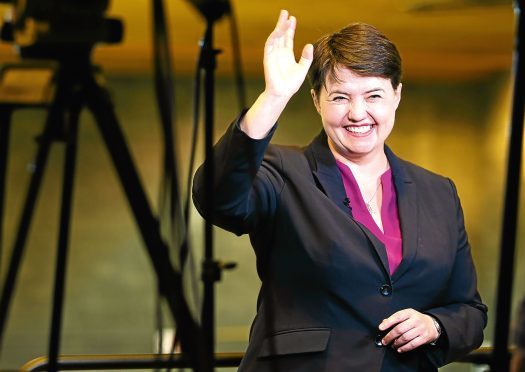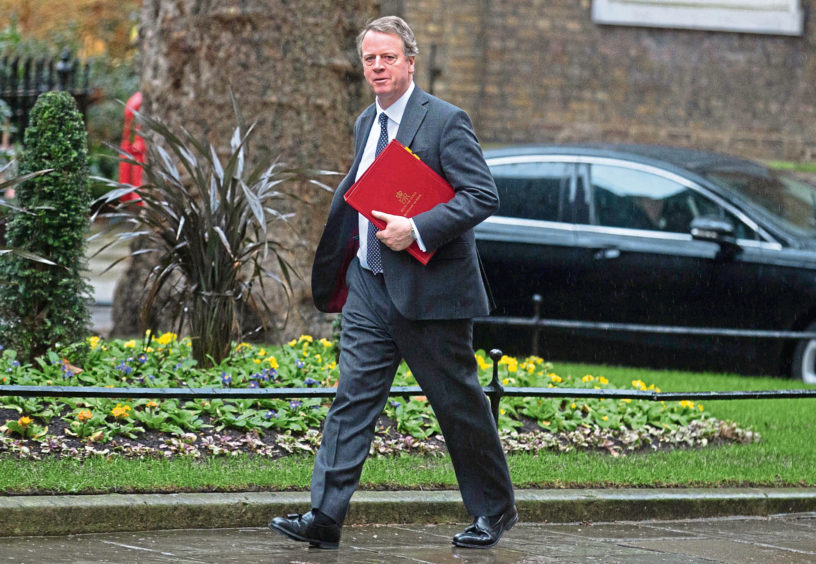In his New Year message Scottish Secretary Alister Jack said 2020 would usher in a “new chapter” in the country’s history.
With the UK set to exit the EU on January 31 (a move he, as a Leaver, will be happy about), we can all move on from the years of “wasteful debate and delay”.
While it is odd for an elected politician to dismiss debate in such terms, Jack’s desire to get Brexit done will probably resonate with many, on both sides of the Europe question.
The past year has been rancorous and the December election marked both an ending and a beginning.
As we can’t turn back the clock to June 2016, the best Britain can do in the year ahead is to secure as painless a withdrawal as possible from Brussels.
To do this, when Prime Minister Boris Johnson rearranges his Cabinet – in an expected February reshuffle – it must better represent all shades of opinion nationwide.
Hopefully, hard Brexiteers such as Jacob Rees-Mogg and Geoffrey Cox will be out, and Johnson’s vaunted one nation conservatism will find expression in a more moderate line-up.
Whether Jack himself survives (alternatives are admittedly thin on the ground), whoever is the Scottish secretary will have a key role to play in what happens next north of the border.
The Scottish Nationalists, buoyant in the wake of their 48-seat haul in the election, have already begun sabre rattling for a second independence referendum.
Johnson’s refusal to grant Westminster approval is hardly likely to quell their clamour – quite the opposite, in fact – and Nicola Sturgeon has signalled she is in something of a hurry.
With Scottish elections just over a year away, in 2021, how will unionists mount a fightback?
Jack has vowed to “put the Union at the very heart of everything we do” but after a few months in the job, he has little clout, either in the Cabinet or in Scotland.
He follows the long-serving David Mundell, a David Cameron man sacked by Johnson, and a relative heavyweight compared to his successor.
It is not enough for Jack to say he wants to see an end to division and “neverendum” over the next 12 months; a majority of Scots want the same.
But to counter the belligerent nationalists in resurgent mood, a much more co-ordinated strategy than the Conservatives currently deploy in Scotland needs to be devised.
During the Better Together campaign that saw off the Yes movement in 2014, a coalition of interests worked in harmony, most of the time, towards the same goal.
Led by the former Labour chancellor Alastair Darling, the pro-Union drive combined talents from Labour, the Tories and Lib Dems – both among the back room toilers and the high-profile big beasts.
The discord of Brexit was yet to descend, and Labour then was a far more benign proposition than it was to become under Jeremy Corbyn.
But the success of the No vote five years ago depended on the burying of any ideological and personal differences between the unionist parties, and the same approach will be needed in 2020.
Jack said he would work with the Scottish Government “to strengthen the Union and improve opportunities for people across Scotland”.
In the present political environment his words are meaningless. What has the Scottish Government said or done under Sturgeon that suggests a desire to strengthen the Union?
Even without a date for Indyref2, the separatist threat should be taken more seriously and the fight to save the Union joined now.
As Scottish secretary, Jack might struggle to make such plans centre stage against the many competing interests in Downing Street, but he could get the ball rolling here.
Sturgeon set out her stall before Christmas with her Scotland’s Right To Choose paper making the case for another referendum.
Who is making the case against? While the Scottish Tories embark on their own leadership contest, perhaps their former chief, Ruth Davidson, could be persuaded to spearhead the unionist defence.
She proved her appeal in the 2017 general election, when her party made big gains in Scotland, and her absence from the frontline was much noticed in December.
Labour support looks unlikely in the foreseeable future, given the Corbyn regime’s overtures to Sturgeon, but that may change under fresh management.
The Lib Dems, also rudderless after Jo Swinson lost her seat, have been unwavering in their opposition to independence and Willie Rennie would surely be a co-operative partner in any anti-nationalist alliance.
A new year removed of the divisiveness of 2019 would be welcome indeed, and London and Edinburgh striving shoulder to shoulder towards peace and prosperity is a noble vision.
But back in the real world, the nationalists are determined to keep constitutional upheaval at the top of the agenda. Unionists must do the same.

